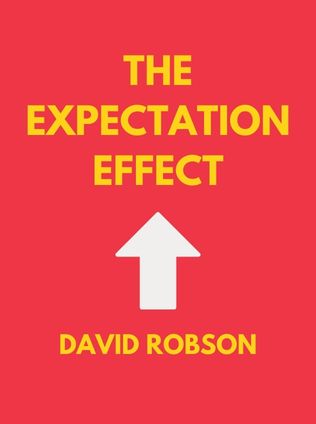
The Expectation Effect
How Your Mindset Can Change Your World
By David Robson
Published 01/2022
About the Author
David Robson, a science writer known for his deep dives into the complexities of the human brain and behavior, has become a voice of authority in understanding the intricate relationships between mind and body. His background in mathematics and psychology gives him a unique perspective, blending scientific rigor with a keen interest in how our mental processes shape our realities. Before writing The Expectation Effect, Robson authored The Intelligence Trap, where he explored the paradoxes of intelligence and decision-making. His work is distinguished by a commitment to making cutting-edge research accessible and actionable for a broad audience. Robson’s personal journey, including his experiences with depression, led him to explore how our expectations can profoundly influence our well-being, ultimately inspiring the creation of The Expectation Effect.
Main Idea
In The Expectation Effect, David Robson explores the powerful idea that our expectations shape our reality in profound ways. The brain, far from being a passive observer, actively constructs our perception of the world, drawing on past experiences, cultural influences, and personal beliefs. This process, known as the expectation effect, can have both positive and negative consequences on our physical and mental health. Robson argues that by understanding how these effects work, we can harness them to improve our health, performance, and overall well-being. The book delves into various domains, including health, aging, fitness, and even creativity, illustrating how our expectations can either limit us or propel us to greater heights.
Table of Contents
- Introduction: The Power of Expectations
- Chapter 1: What Are Expectation Effects?
- Chapter 2: How Your Brain Constructs Reality
- Chapter 3: The Physiology of Expectation
- Chapter 4: The Psychology of Expectation
- Chapter 5: Expectation Effects in Health
- Chapter 6: Expectations in Aging
- Chapter 7: The Power of Placebo
- Chapter 8: Overcoming Limits in Sports and Exercise
- Chapter 9: Nutrition and Expectations
- Chapter 10: The Impact of Expectations on Intelligence and Creativity
- Chapter 11: Harnessing the Power of Expectations
Introduction: The Power of Expectations
The book begins by introducing the concept of the expectation effect, explaining how our beliefs and expectations shape our reality. Robson emphasizes that these effects are not mere illusions but are grounded in physiological and psychological mechanisms that influence everything from how we perceive pain to how we age. The introduction sets the stage for a detailed exploration of how we can leverage the expectation effect to our advantage.
What Are Expectation Effects?
Robson defines expectation effects as the phenomenon where our beliefs and expectations influence our physical and mental outcomes. For example, if you believe that a medication will relieve your pain, your body may respond accordingly, even if the pill you took was a placebo. This effect, Robson argues, is pervasive and powerful, influencing everything from our stress responses to our performance in sports.
“An expectation effect occurs when your beliefs exert an influence over your well-being, as when you take a pill for a headache and feel better not because of what’s in the pill but because you expect the pill to cure your headache.” – David Robson
How Your Brain Constructs Reality
To understand expectation effects, Robson delves into how the brain constructs reality. Rather than passively receiving information from the senses, the brain actively predicts and constructs our perception based on past experiences and current expectations. This predictive mechanism is efficient and helps the brain manage the vast amount of sensory information it receives. However, it also means that our perceptions can be biased by our expectations, leading to both beneficial and detrimental outcomes.
- If you expect a social situation to be stressful, your brain might amplify minor social cues, interpreting them as more threatening than they are, thus increasing your anxiety.
- When athletes believe they are in peak condition, their brains may push their bodies beyond what they would normally consider their limits, leading to improved performance.
“Your brain doesn’t just perceive reality—it actively constructs it.” – David Robson
The Physiology of Expectation
Robson explains that expectation effects are not just psychological; they have a profound impact on our physiology. For instance, positive expectations can trigger the release of neurotransmitters like dopamine, which enhances our mood and reduces pain. Conversely, negative expectations can lead to the release of stress hormones, exacerbating feelings of pain and discomfort.
Sign up for FREE and get access to 1,400+ books summaries.
You May Also Like
The Subtle Art of Not Giving a F*ck
A Counterintuitive Approach to Living a Good Life
By Mark MansonRich Dad Poor Dad
What the Rich Teach Their Kids About Money - That the Poor and Middle Class Do Not!
By Robert T. KiyosakiHow To Win Friends and Influence People
The All-Time Classic Manual Of People Skills
By Dale CarnegieFreakonomics
A Rogue Economist Explores the Hidden Side of Everything
By Steven D. Levitt and Stephen J. Dubner



















